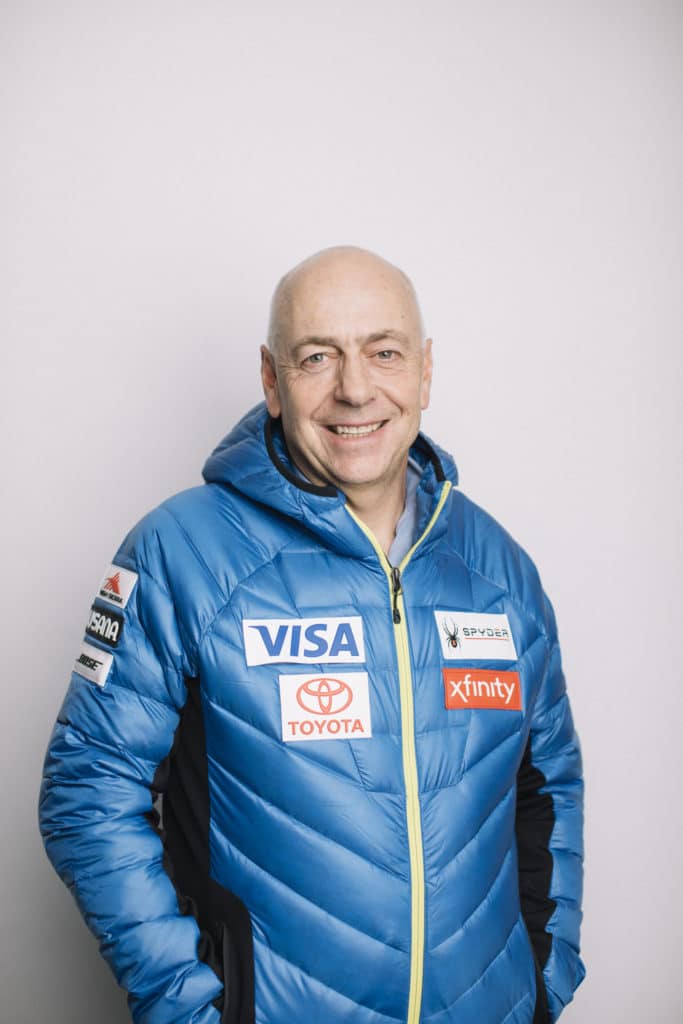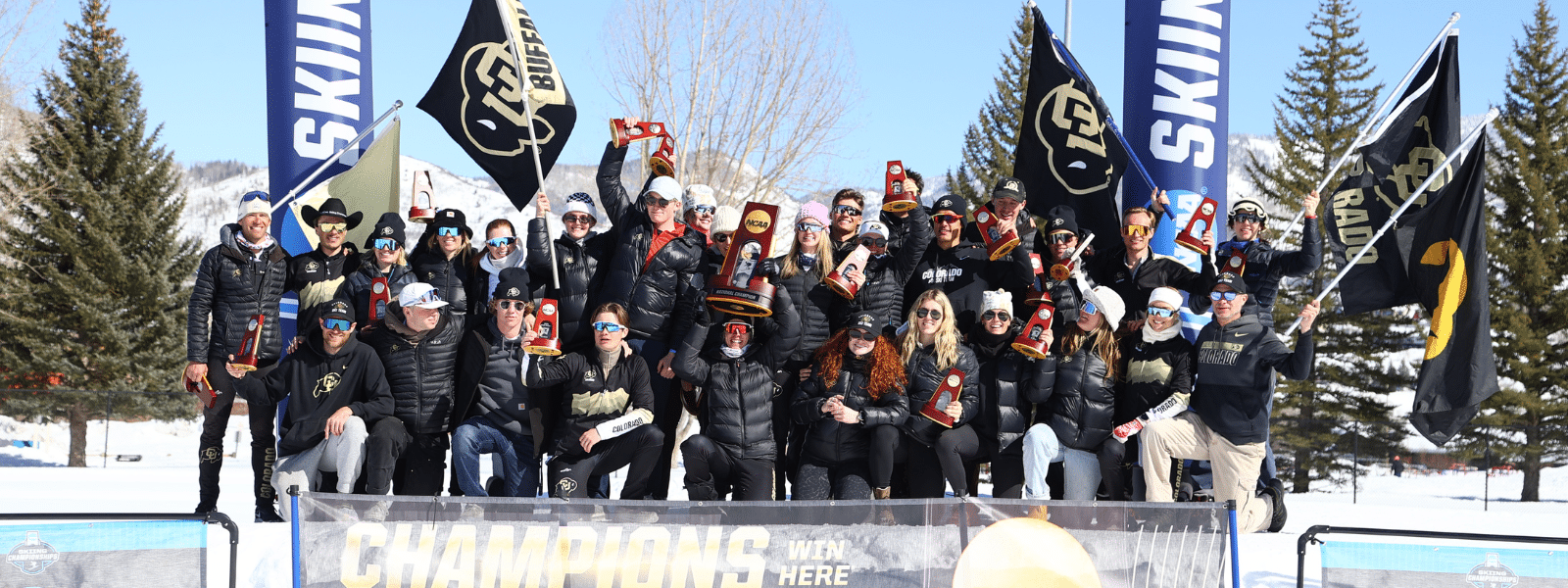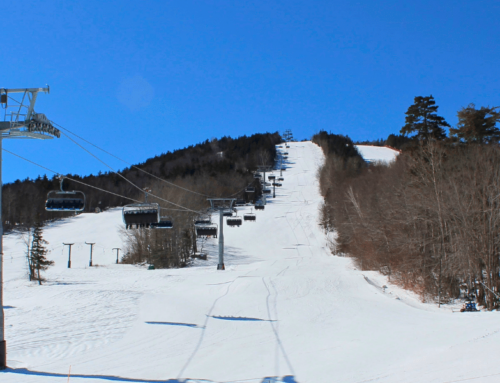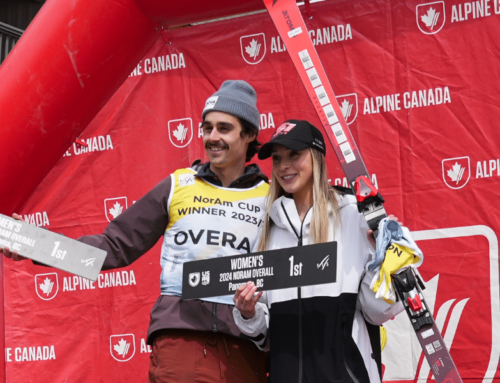FIS Council VP Dexter Paine Loses Seat For Supporting Change
Pursuing progressive change has cost the election of the FIS Council vice president, Dexter Paine. And now, the U.S. has begun looking for the right FIS Council candidate for 2024. But no one believes it will be easy to replace Paine.
By all accounts, Dexter Paine served on the FIS Council with distinction, dedication, and purpose. However, Paine’s FIS Council tenure ended this year when he failed to receive the necessary votes. It is essential to understand that Paine’s profession is not advocating for snow sports; it’s his overwhelming passion.
Austrian Schröcksnadel comments
Peter Schröcksnadel, a longtime FIS Council member and the former President of the Austrian Ski Federation, considers Paine a friend. Schröcksnadel says, “I greatly appreciate Dexter’s contributions to the council. He was one of the few who shared his voice. And we counted on him to offer his thoughtful opinions. Regrettably, he is no longer a member. People like him, and he is highly respected.”
Paine’s influence began long before his first election to the FIS Council in 2014. And his rise to Vice President of the FIS Council is a testament to his preparation and dedication. First elected in 2014, Paine started attending FIS congresses ten years earlier in 2004. In addition, he attended as many international events as his schedule would allow. Paine spent a decade forming relationships with council members, FIS staff, and race organizers. However, after those ten years, Paine understood how the FIS functioned. And he had insight into changes he believed could improve the organization.
Paine inspired by Bill Marolt and Hank Tauber
His initial inspiration to become a council member came from observing and admiring former USSA CEO Bill Marolt. Marolt had served for 12 years as a U.S. representative. And Paine witnessed firsthand that Marolt’s FIS work positively affected U.S. snow sports.
Paine recalls, “My initial inspiration came from seeing Bill Marolt’s contributions to get the Vail Alpine World Championships in 2015. And then I witnessed his work to get the 2019 Park City Freeski, Snowboard, and Freestyle World Championships.” Paine continues, “I watched Bill and thought, Wow, this is the level of impact I think I can have on the FIS. And I can also positively affect skiing and snowboarding in the United States. By then, I had established good relationships within the FIS community. But I also felt the FIS had become stale and needed to change. The FIS needed to adapt to remain relevant and inspire the next generation of ski racers. I thought I could be a catalyst for that change.”
Opportunity arrives
With Marolt stepping down, Paine ran for the vacant FIS Council seat in 2014. And Paine’s qualifications did not go unnoticed; easily elected, Paine received a significant number of votes.

He says, “I had good relationships with both (FIS President) Gian Franco Kasper and (Secretary-General) Sarah Lewis. Both were influential in helping me get elected to the council.”
Paine, however, had a plan of change. And first on his list was more transparency and better communication with our athletes and members.
At the time, Kasper’s and Lewis’s compensation came through the Holder Foundation, not directly from the FIS. The problem, Paine realized, was that because of the arrangement, no one knew the compensation level of the top two people in the organization. With the support of other council members, Paine was able to change the situation.
Champion of Inclusive representation
Paine also championed female representation on the council. He sponsored a statute requiring there be a minimum of three council members of each gender. Currently, four recently elected women, plus a female athlete representative, serve as council members.
He has been a strong advocate of including the athletes on the council in decision-making roles. Paine remarks, “The FIS Council needs athletes represented in a meaningful way, and we need to listen to athletes in terms of what they need from the organization to help them be successful.”
When Paine first became a council member, the athlete representative only had observer status. Now, due to the push of Paine and others, the two athlete representatives are full members with full voting rights. And another change under Paine’s watch was that the term of the athlete representatives has increased to 4 years. And when it comes to athletes voting for World Championship site assignments, the 2022 Congress provided the athlete representatives their first opportunity to participate as voters.
Currently, one of the two athlete members on the council is American Hannah Kearney. An Olympic mogul star, Kearney has served since 2018 and has three years left in her current term.
Kearney, however, is the athlete representative first and must focus on athlete issues for all nations. She is, however, an American who will undoubtedly support the interests of her native country.
Paine shows respect to athletes
SRM caught up with Kearney and asked her about her experience working with Paine on the council. She expressed that Paine realized that working with the athletes benefited the FIS and the athletes. Kearney says, “Dexter is a pleasure to work with. It never felt like he was trying to pass some extended term limits for athletes only to make it look better for the organization. He did things because he thought it was better for the overall health of sports. That made Dexter different. Working with him has been a treat. I believed him and trusted him. He made things happen for the benefit of the athletes.”
Kearney reflects, “I told him this before I retired as an athlete; I had no idea that athletes needed someone like him to advocate for them. And the positive changes I saw throughout my career were the direct result of the efforts of people like Dexter. You cannot overstate his contributions.”
Paine comments, “It’s always been my opinion that the athletes on the council needed to have the same rights and respect given to the other members.”
FIS needs to find ways to benefit athletes financially
Paine, however, sees more than representation needed for the athletes. He states, “The FIS should be spending their cash reserves on higher prize money across all of our sports. I believe that the FIS should be supplying the prize money rather than the local organizing committees. My goal was to see a day when the athletes think of the FIS as the organization that supports and pays them. They need to know the FIS wants them to succeed athletically and financially.”
Unfortunately, Paine championed an important athlete initiative that didn’t happen during his time as a council member. He longed for athletes to have an increased ability to access their media content to help build their brands. Paine laments, “I would give it to them for free.”
Another success at the 2022 Milan Congress
Fortunately, Paine had been driving another effort to include the Para Snow Sports in the FIS family, and at the 2022 Milan Congress, this dream became a reality. “Para athletes and the Parasports are an essential part of our community. They are prominent community members and significant contributors to snow sports globally.”
The United States needs a council member
Regarding the Paine election, Austria’s former council member Schröcksnadel has a strong opinion. He says, “I am one hundred percent sure that a big nation like the U.S. not having a council member is terrible. It is bad for snow sports, it is bad for the FIS, it is awful for the council, and it is bad for the U.S.”
By all accounts, Paine was a dedicated council member who advocated for transparency and gender equality. And he was an athlete-centric member. Paine was popular and someone who had always been amongst the top vote-getters. He had risen to the level of vice president of the FIS Council. So how did he lose a FIS Council election? FIS President Eliasch says, “He was caught in the contentious crossfire. It is politics.”
Paine backs progressive presidential candidate Eliasch
Referring to the death of President Kasper, Paine expresses disappointment because he had never been able to thank him for his years of outstanding service.

Now, however, it was time to elect a new FIS president. Paine backed the like-minded, progressive Johan Eliasch. Eliasch brought new ideas, a desire for change, and an outsider’s perspective.
Schröcksnadel adds, “In the end, Dexter lost the election because of his support of Eliasch.” Continuing, “I believe Johan could be the right man to run FIS. He thinks out of the box, and we need to make changes, but change creates fear.”
Schröcksnadel explains, “Johan, Dexter, and I agreed that change is important, and most of the time, we could agree on that, but we saw different paths and timelines to getting there. However, the three of us working together could move the council in a good direction.”
Together, the three men agree that change is required if FIS snow sports are to survive and reach their potential. If re-elected, Paine would have continued pursuing governance reform and gender equality issues. And he would continue to push to benefit athletes. But Paine also saw a need for a more dramatic change in marketing and broadcasting rights.
It is important to note here that Paine still believes in the quality of the people on the council and believes the best is yet to come.
Paine stands with pride in a politically dangerous environment
While Paine saw a different timeline than Eliasch for implementing marketing and media rights changes, he agreed with him on the hot-button topics. He agrees with Eliasch that all sports formats need constant evaluation to stay relevant and excite fans
However, more dangerous to his political survival, he backed a complete review of marketing and media rights. And he openly and honestly questioned the present ownership structure of the FIS marketing and FIS media rights.
Paine’s vision for the coming years was to have the FIS first hire the appropriate staff to take on the marketing of sponsorships and media rights. Then, after the FIS proved its capabilities to enhance marketing, it could take on broadcast rights.
As reported, President Eliasch has stated that centralization of marketing and broadcasting rights is not an if; it is only how and when.
However, these two issues are contentious amongst some of the most influential FIS members, and Paine’s support of their implementation has likely cost him his seat on the council.
Finding the next U.S. FIS council candidate
Currently, the U.S. is without an elected representative on the FIS Council. We will, like other nations, spend the next two years hoping for our friends to support our interests. Paine is confident that newly elected Deidra Dionne of Canada, Argentinian member Magdalena Kast and Australian member Dean Gosper will be helpful.
As good as having friends is, Paine admits that it is not ideal without a U.S. council member. And he informs us there are some unwanted vulnerabilities related to not having a council seat. Then the concern is that the U.S. doesn’t currently have a candidate like Paine waiting in the wings who has spent a decade preparing for the opportunity.
Paine gives a bit of advice on the selection of the 2024 U.S. candidate. He comments, “In two years, the U.S. candidate will have to be someone who has relationships within the FIS community, someone with the time and energy to apply to the council and its business. And the more experience they have in Europe attending races, World Championships, and the Olympics, the more influential they become in snow sports.
Paine, however, doesn’t harbor ill will or doubt that the election was free and fair, and he admits that the reality is that he lost a legitimate election.
The strange final day on the council
He does, however, shake his head concerning his last congress as a council member. It had been a long FIS tradition to have an acclamation for the president when they run unopposed. Paine says, “I raised the point that since we only had one candidate, and we have a long agenda to get through, let’s elect Eliasch by acclamation. And the council unanimously approved that motion. The unanimous agreement for acclamation happened at four o’clock the day before the election day.”
Surprisingly, this group approving acclamation included (Switzerland’s) Urs Lehmann, (Germany’s) Franz Steinle, (Norway’s) Erik Roeste, (Sweden’s) Mats Arjes, (Finland’s) Martti Uusitalo, and (Austria’s outgoing member) Peter Schröcksnadel. We have learned Schröcksnadel was unaware of the planned protest. All six of these council members approved acclamation but represented countries that walked out of the vote and signed the petition. The petition objected only to the election procedure—this objection after agreeing to a traditional acclamation only one day before.
Ski Racing Media has reached out to understand why the petition-signing nations needed to object to the election. We asked why they didn’t instead run a candidate in opposition to President Eliasch. At this point, we can only speculate. We have received multiple stock responses that in no way make logical sense. If disruption was their goal, they achieved it. We, however, continue to welcome comments on the protest from anyone who participated.
In the end, this dedicated council member did not get reelected. However, Paine stood tall for his informed and progressive beliefs and for what he thinks is best for the sport. He believes the FIS must change and adapt to stay relevant and healthy and continue to attract athletes to our sports. One thing is sure, Paine will continue dedicating his expertise and experience to the sports he loves.





















